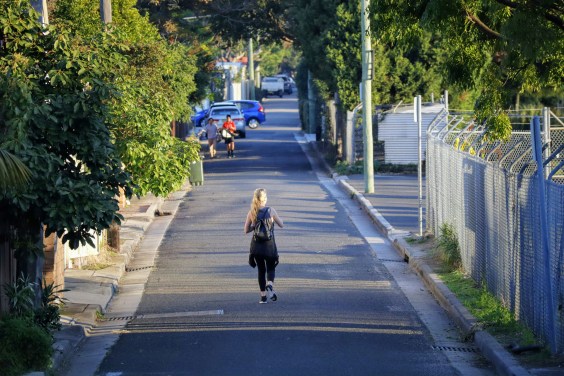 Flickr photo: pbo31
Flickr photo: pbo31In honor of the 50th anniversary of San Francisco's famous "Freeway Revolt," car-free Board of Supes President David Chiu has introduced a resolution calling on the Metropolitan Transportation Commission to reallocate funds for highway expansion and "prioritize investment in public transit maintenance."
"This is really to put us on record as saying we really think the funding ought to be used in different ways," said Chiu, who plans to ask the two MTC Commissioners representing San Francsico, Supervisor Chris Daly and Jon Rubin, to "take this up as their issue at the MTC."
The resolution points to the MTC's Regional Transportation Plan (RTP) proposal for $6.4 billion in highway expansion projects over the next 25 years, which "will encourage sprawl and increase greenhouse gas emissions," while public transit agencies are projected to have shortfalls for capital needs: a $4.5 billion deficit for Muni and $7 billion for BART.
"We wanted to talk about some of the trade offs of investing in highways, particularly highways where you have public transit corridors that ride alongside," said Chiu. The resolution acknowledges how "poorly-designed highways often serve as barriers to the movement of sustainable transportation modes."
Tom Radulovich, the executive director of Livable City who sits on the BART Board of Directors, helped craft the resolution:
MTC's regional transportation
plan makes it abundantly clear: the region must choose between highways
and transit, because there is nowhere near enough money to fund both.
Unless we choose to stop pouring money into highway expansion, transit
will get more crowded and unreliable, our local streets will continue
to fall apart, and transit fares will go up and service will get cut.
Unless we stop building highways, we will not be able to meet our
environmental goals, protect the climate, or preserve our greenbelt.
In response, Randy Rentschler, a spokesperson for the MTC, called the RTP "the most transit-friendly plan of any metro area in the entire country." He said that many of the decisions the MTC has made about highway expansion have been at the voters request, including Proposition 1B in 2006.
“This notion that my agency is so powerful that we’re able to essentially bend every decision is just simply not the case. The fact that the Board of Supervisors wants to make this statement, look, that’s just fair game. I get that. That makes perfect sense, that given where we are with transit, whatever we can, let’s do more of it. But it also doesn’t reflect basic factual points that are out there that the voters have spoken on and there’s little to do about changing that.”
But Radulovich said he hopes San Francisco will "start a regional movement to pull the plug
on freeway expansion, and fund a linked-up regional transit network
instead," and he noted the groundbreaking movement that stopped seven freeways from being built in the city in 1959:
2009 is the 50th anniversary of San Francisco's Freeway revolt.San Franciscans realized back then that freeway building was ruiningthe city's environment and destroying its livability, and set itself ona different path. Despite the wavering political support for transitover the years, San Francisco is a success story – we invested intransit, and added tens of thousands of jobs to the city without addingany new freeways – in fact, we removed a few. San Francisco set anexample that cities around the world are now following. Now it's timefor the rest of the region to choose the path towards a sustainable andlivable future.
Updated 4:20 p.m.




